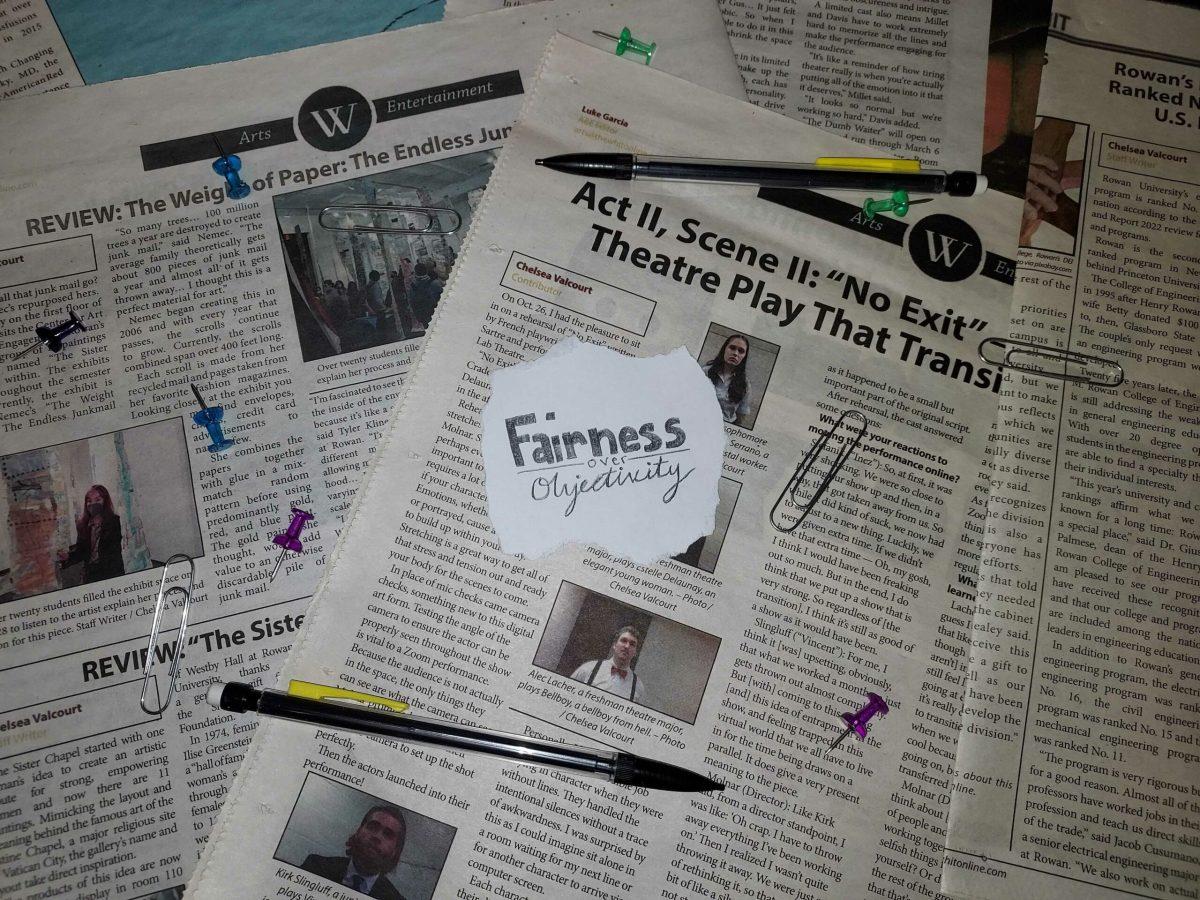All traditional journalists are misguided.
The essence of the journalistic curriculum at the collegiate level is heavily based on an ideal that parallels the aspirational state of a clean slate. That ideal is the concept of objectivity.
By definition, objectivity can be defined as a void of influence by personal feelings or opinions in considering and representing facts.
In the years of education it takes to be a professional in journalism, maintaining objectivity has been preached as the gold standard, emphasizing eliminating bias from work. Newsrooms nationally pride themselves on being completely objective in their coverage, yet there still remains a line drawn between values at publications.
In coming to the understanding of how impossible it is to maintain true objectivity in the world of media, I came to two conclusions — journalism is a human process and the fabric of American journalism was actually built on a division of common interest.
A primary cause of the disparity in values across newsrooms and editorial offices in America is way bigger than the mere battle of blue versus red, with the real enemy of objectivity being human nature. Writing is an art, and artistic processes involve emotion whether we choose to acknowledge or denounce it. Subconsciously, every journalist exercises their opinion and bias subtly through their process. Simple choices like diction or deciding what is important to emphasize within a story and what isn’t can subconsciously show a journalist’s feelings. It is inevitable that passion will be felt in journalistic work, no matter the medium.
In reading further into the history of American journalism, you’ll find that the foundation of the industry we know today was built on two parties during the American Revolution, preceding the existence of our nation. The conflict that essentially called for the press to exist was loyalists versus patriots, as newspapers formed to produce news for both biased vantage points between loyal British people and the residents of the colonies. The earliest publications formed were extremely biased entities, which basically emphasized that expressing views through the news has been a part of the foundational system that we have grown to adopt today.
In the middle of American history, groups of journalists attempted to double back and reverse the system of heavy bias within press practices, but reverting to a concept of objectivity has proved unsuccessful. While more fair coverage has come out of this change in approach, eradicating bias from the fabric of American journalism is as possible as removing cotton from a pair of jeans while leaving the twill.
As I enter the field upon my graduation as a journalism student, I have come to the conclusion that the best way to report is actually in prioritizing fairness as opposed to seeking out the ghost that is objectivity. In the SPJ Code of Ethics, which has been used as a journalistic education standard during my course, fairness plays an important role, but objectivity is absent from the code. Fairness is best achieved through demanding a level of accountability in understanding the emotional process it takes journalists to articulate themselves.
Objectivity is definitely a myth, and fairness is the future in the world of journalism.
For comments/questions about this story, email [email protected] or tweet @TheWhitOnline
























































































































































!["Working with [Dr. Lynch] is always a learning experience for me. She is a treasure,” said Thomas. - Staff Writer / Kacie Scibilia](https://thewhitonline.com/wp-content/uploads/2025/04/choir-1-1200x694.jpg)











































